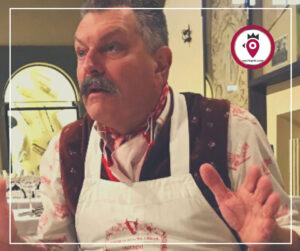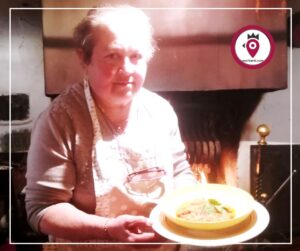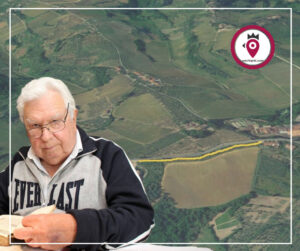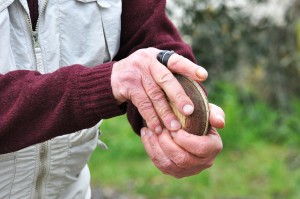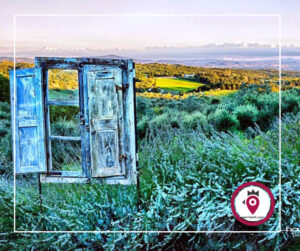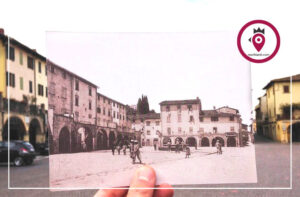Articolo disponibile anche in: Italian
This is a story which developed over 150 years of social and economic changes, with Chianti as its background… it is the story of “Ristoro di Lucarelli”, told by the actual proprietor, David Cavini, made famous a few years ago for the discovery of small pieces of gold in the Pesa River together with his friend, Adriano Del Lungo.
The story begins in 1875, when his greatgrandfather, Amerigo Dainelli, decided to emigrate to Montevideo, Uruguay. Amerigo, who is portrayed in a realistic portrait on the wall of the restaurant, tried his fortune abroad as did many of his fellow immigrants.
He left Lucarelli with only his culinary talent and the courage of his wife who decided to follow him with her small children. They were a simple couple who paid for the Ocean Crossing by working on the ship: he a heys a cook and she as a dishwasher.
Maybe because of the sound of his name but more than anything because of his experience in South America, when he returned, Amerigo was rebaptized “L’Americano”.
When Amerigo finished building his home (with guest quarters and a coaching inn) on land given him by a friend who worked at the Castello d ’Albola, homage was paid to his transoceanic adventure by the locals and the establishment was also called “L’Americano”.
We can see this in documents from the early 1900s. Initially l’Americano (the locale) was used as a place to tie up horses for the traveling salesmen who went around the roads and countryside and brought products to sell in the Florentine markets. It was a logistic point of strategic value considering its hill which led up to the highest point of Panzano.
When Amerigo died in 1936, one of his seven sons, Nello, nicknamed “Valencia”, took over the business. It became well-known as a salt and tobacco shop and for food stuffs for the neighboring inhabitants, especially farmers.
Trade was often conducted in the form of barter or in stretched out payments according to the seasonal sales of products, like pork and olive oil.
In the meantime, the youngest brother, Umberto, thus nicknamed because of his appearance, and famous to have a sung a song of the partisans while the fascists passed by, because of other roads taken, as David tells us, ended up in jail.
While he was in jail in La Spezia, Cencino commissioned one of the prisoners to paint his father Amerigo from a photo that he had in his bag.
The next step happened in 1962 for the third generation of the Dainellis, when David’s parents returned to Lucarelli to help the grandfather, Nello, run his business during the phase of Chianti which saw local customs disappear, the end of the sharecropper system, and the abandonment of the fields.
Birth and development of the tourist phenomenon returned breath and prosperity and prospective to the area, including the activity of the “Ristoro di Lucarelli”, which had recuperated its early location in the 1980s. It is no longer a place to keep horses, but a restaurant for passing motorists and truck drivers as well as a hospitality point for international visitors.
“L’Americano”, in its small way, tells us about the passage of history and the transformation of the Chianti region.
Cosimo Ciampoli
